View the spoiler for my guess at what I think it might be, but please first come to your own conclusion before looking at mine — I don’t want to bias your guess.
My guess
Psilocybe cyanescens
They were found in mid-november in the Salish Coast region of Cascadia. They were growing out of woodchips composed of a mixture of western hemlock (majority), and western red cedar.
Side view of one full mature specimen:
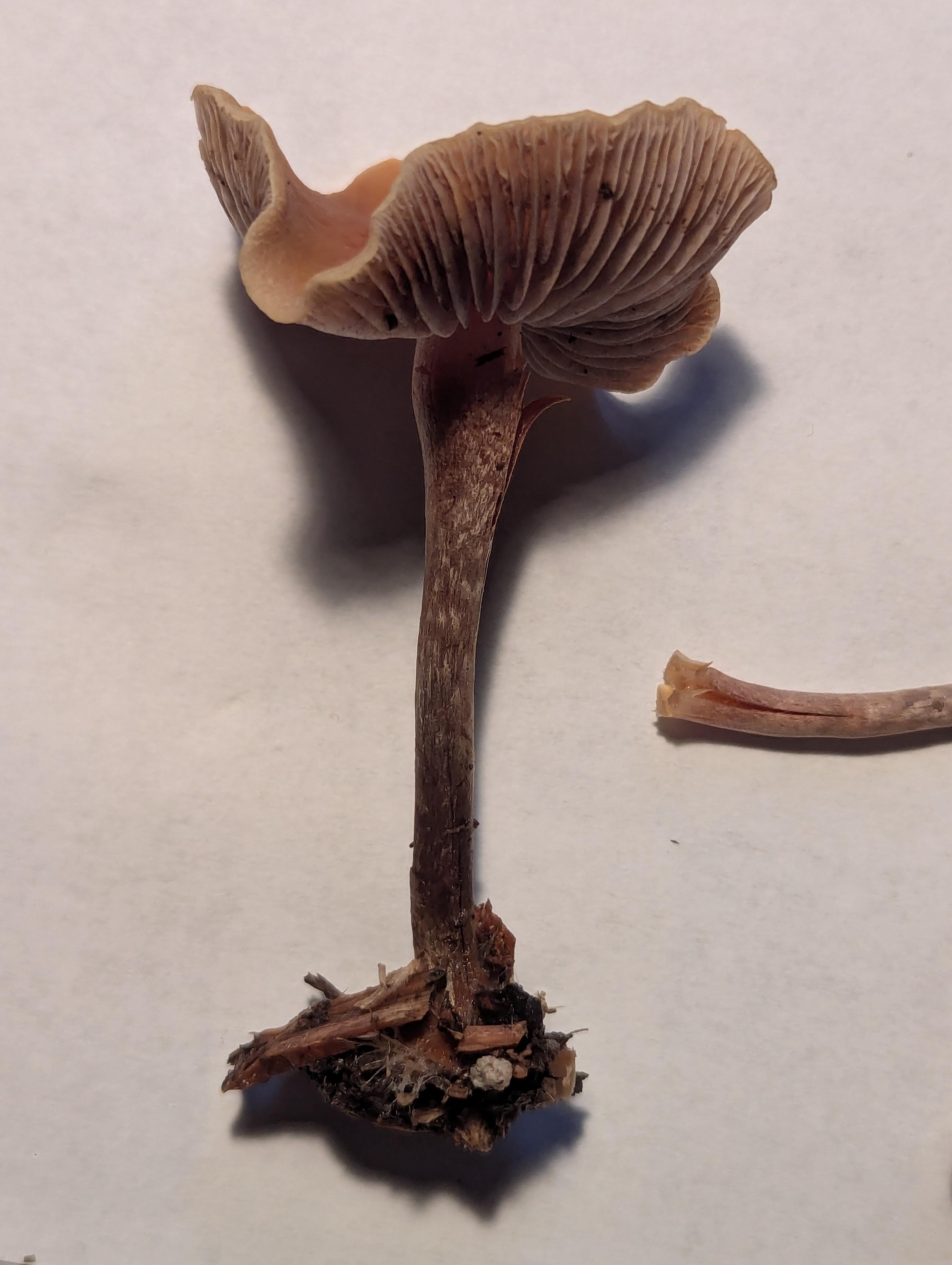
A group with a sample of the substrate (the cap appears to be umbonate):

A closeup side view, and internal view of the stem (it appears to be hollow):
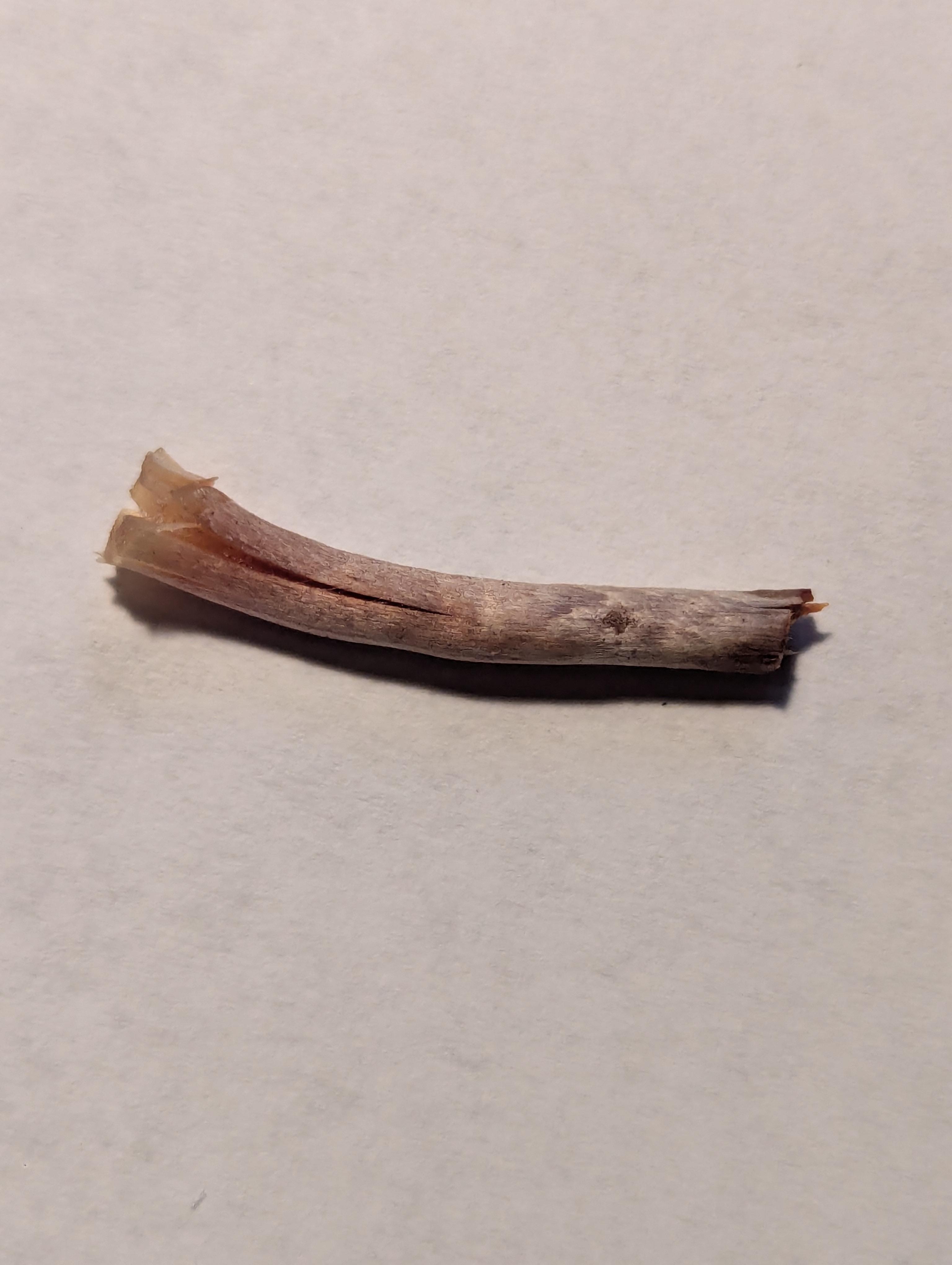
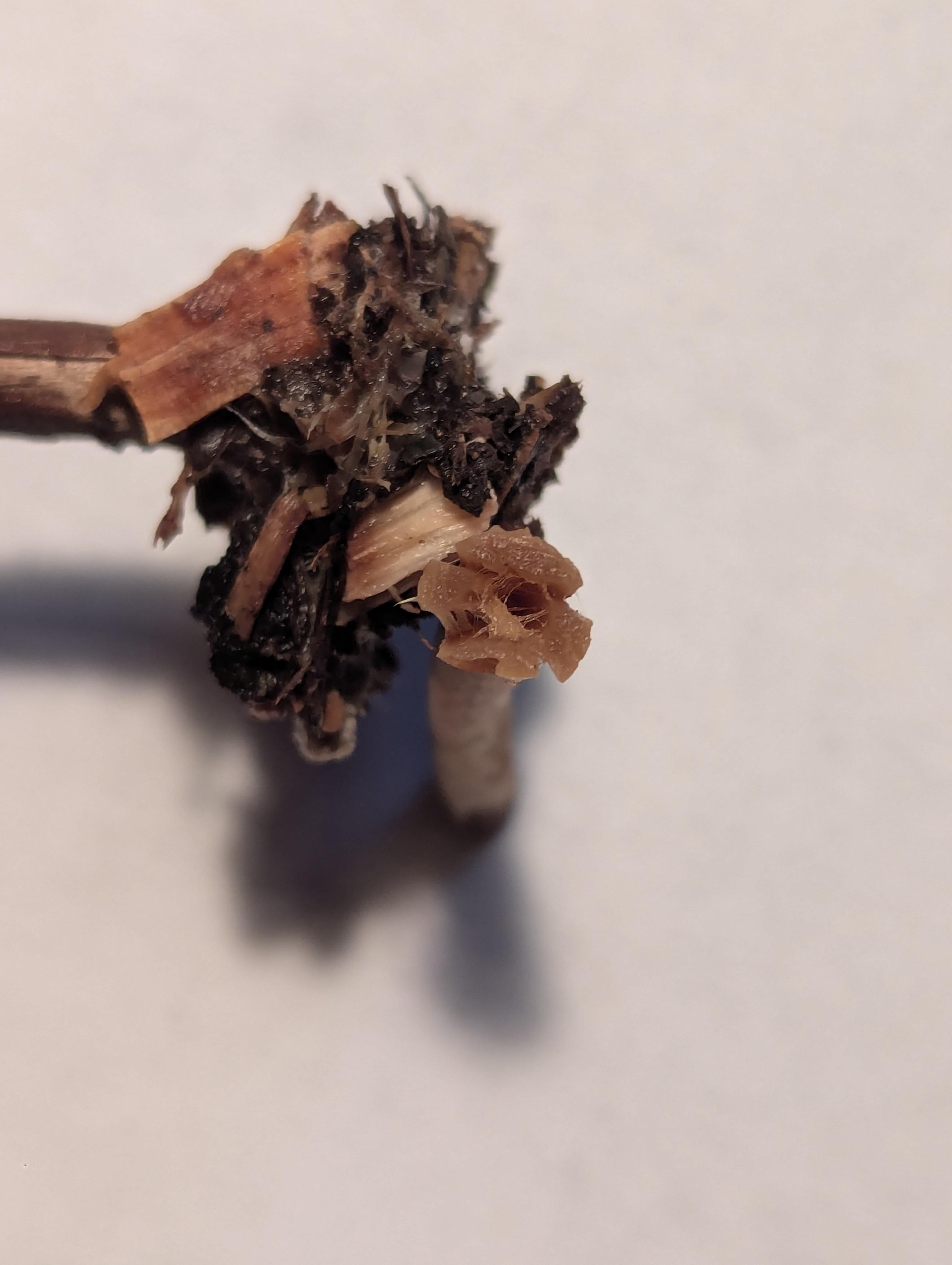
Cross section of the gills — they appear to be adnate, or sub-decurrent:
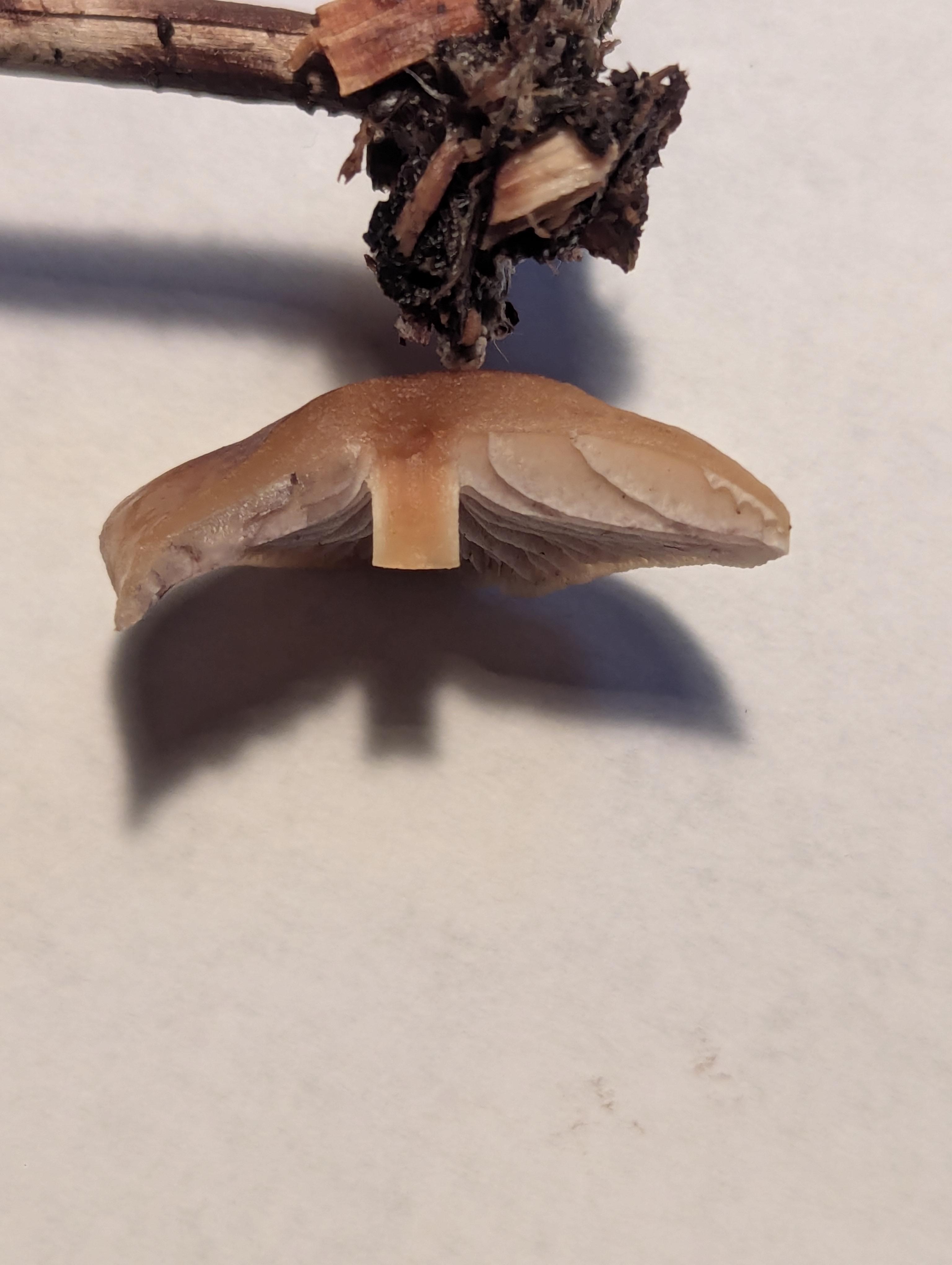
Underside of view of the gills:
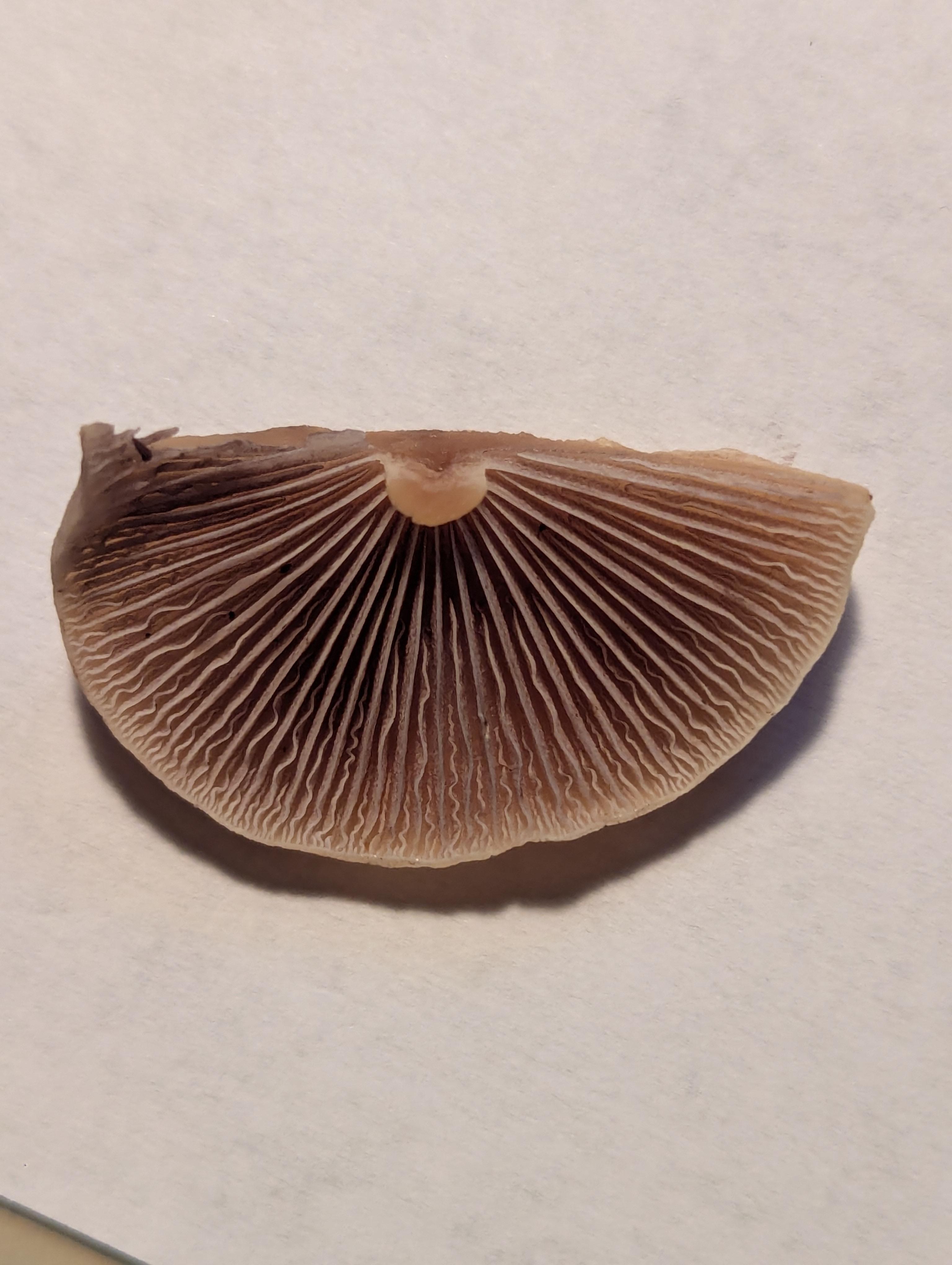
Spore print (first on white background (the split is due to two halves), second on a black background):
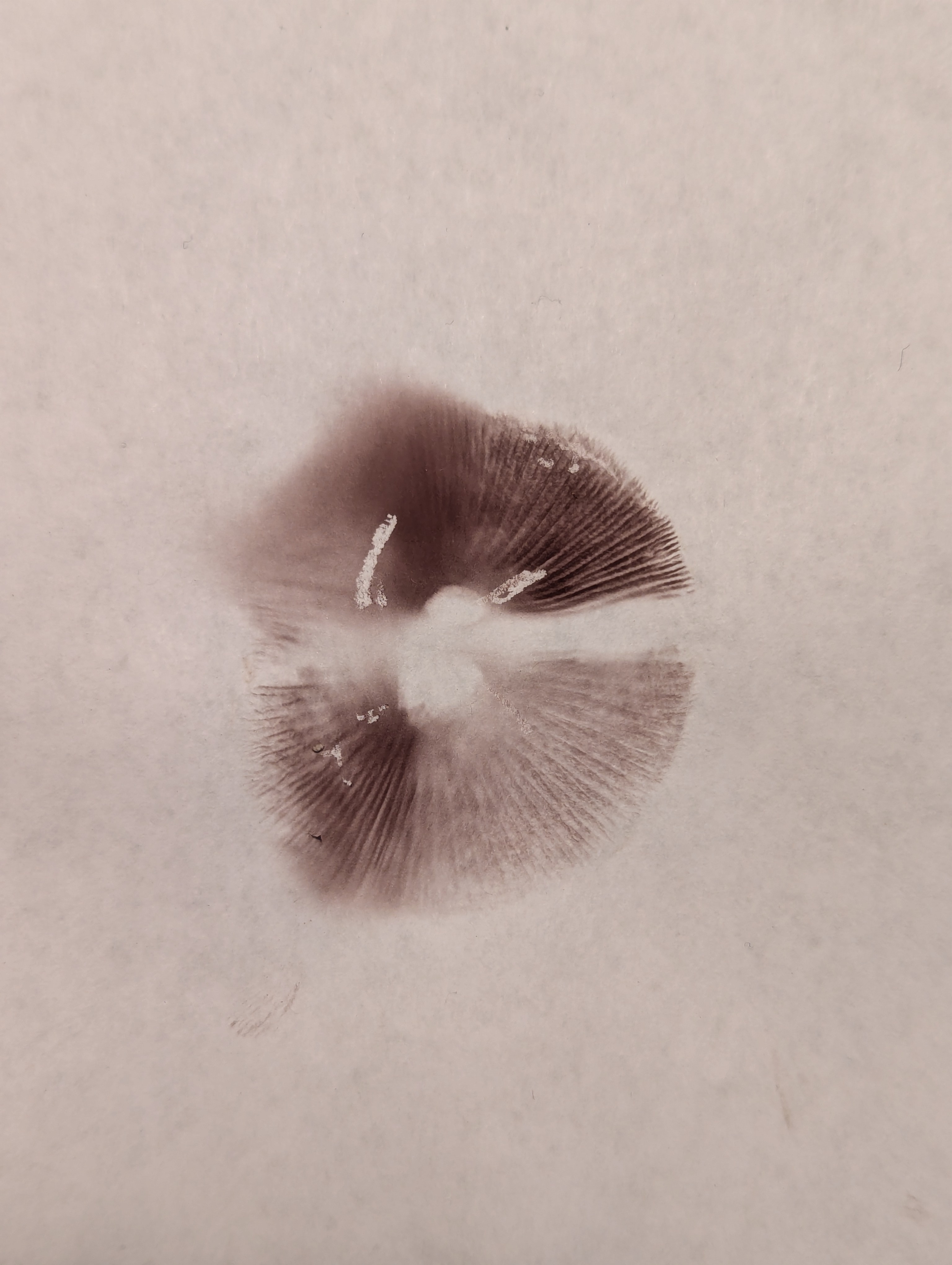
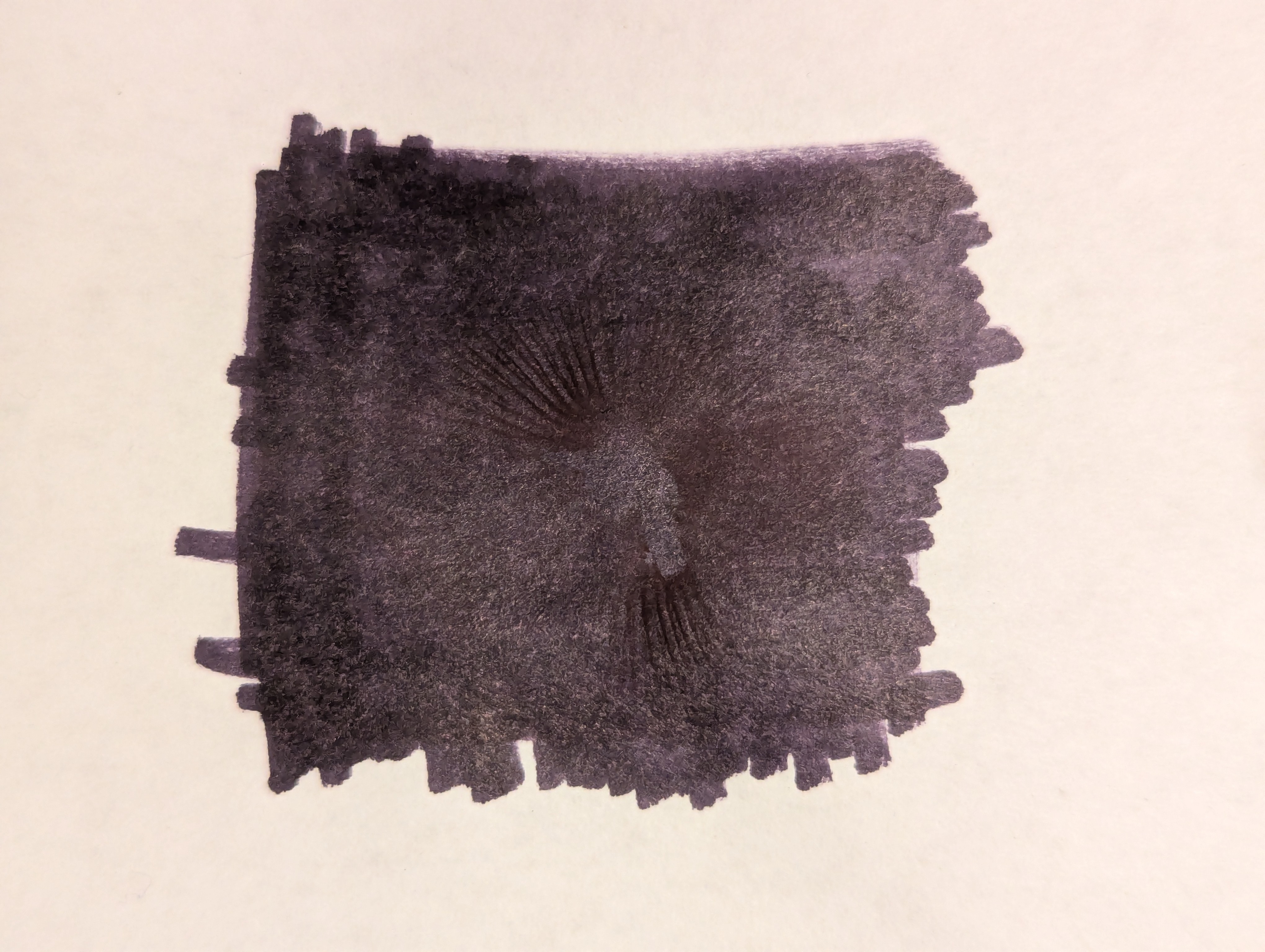
Examples specimens once dried:
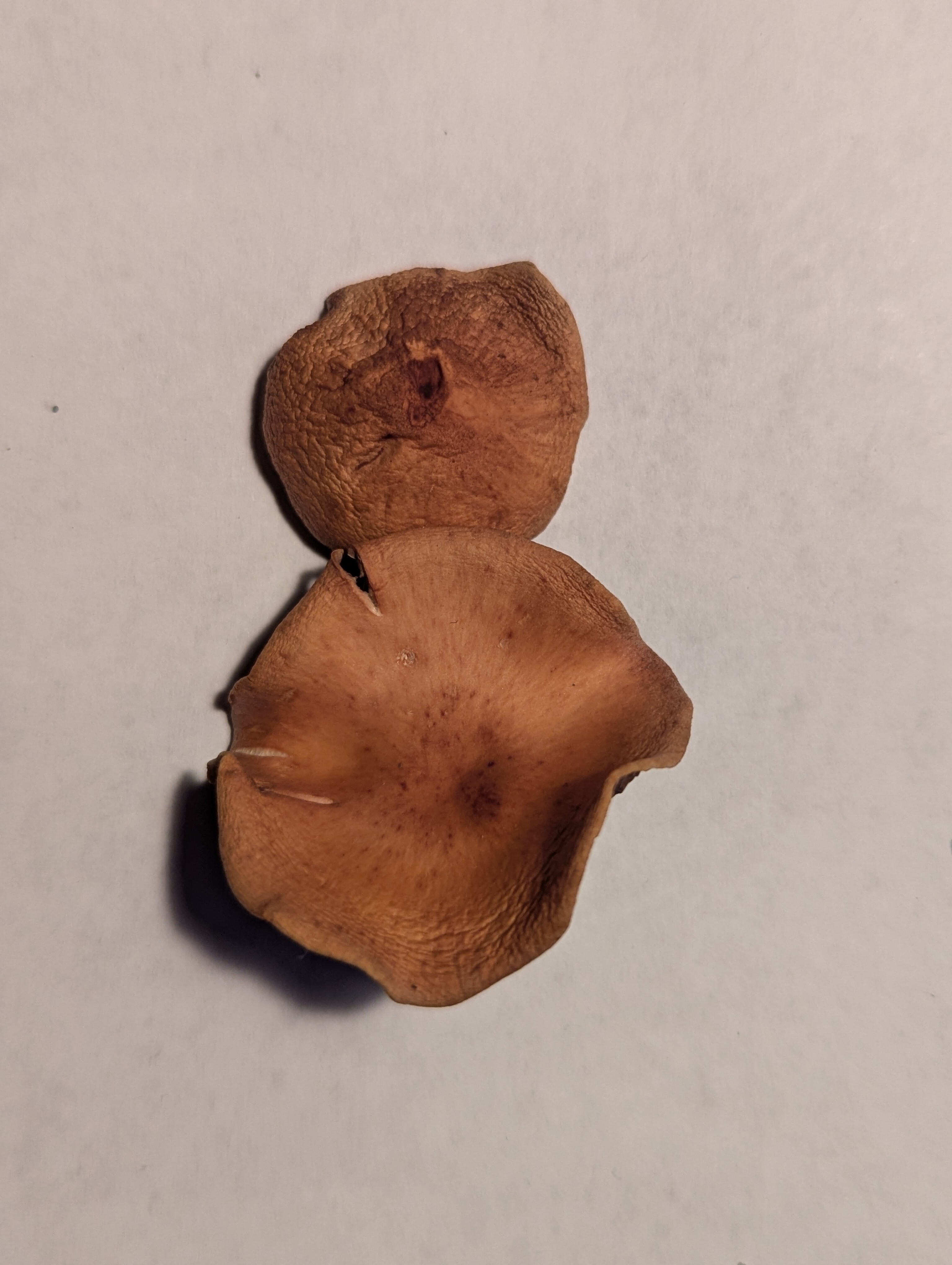
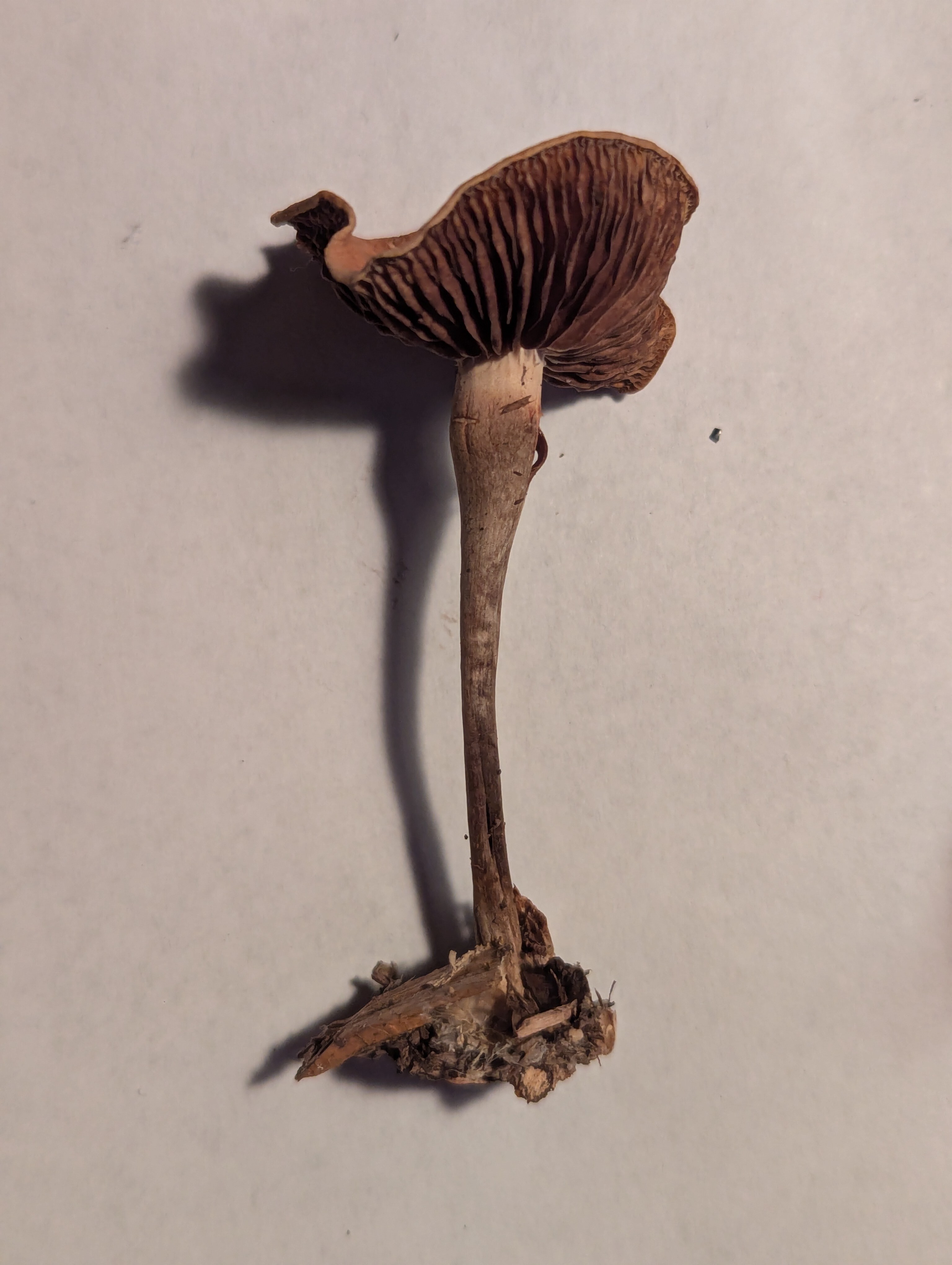
Examples of the colony, and the location/substrate in which it was growing:
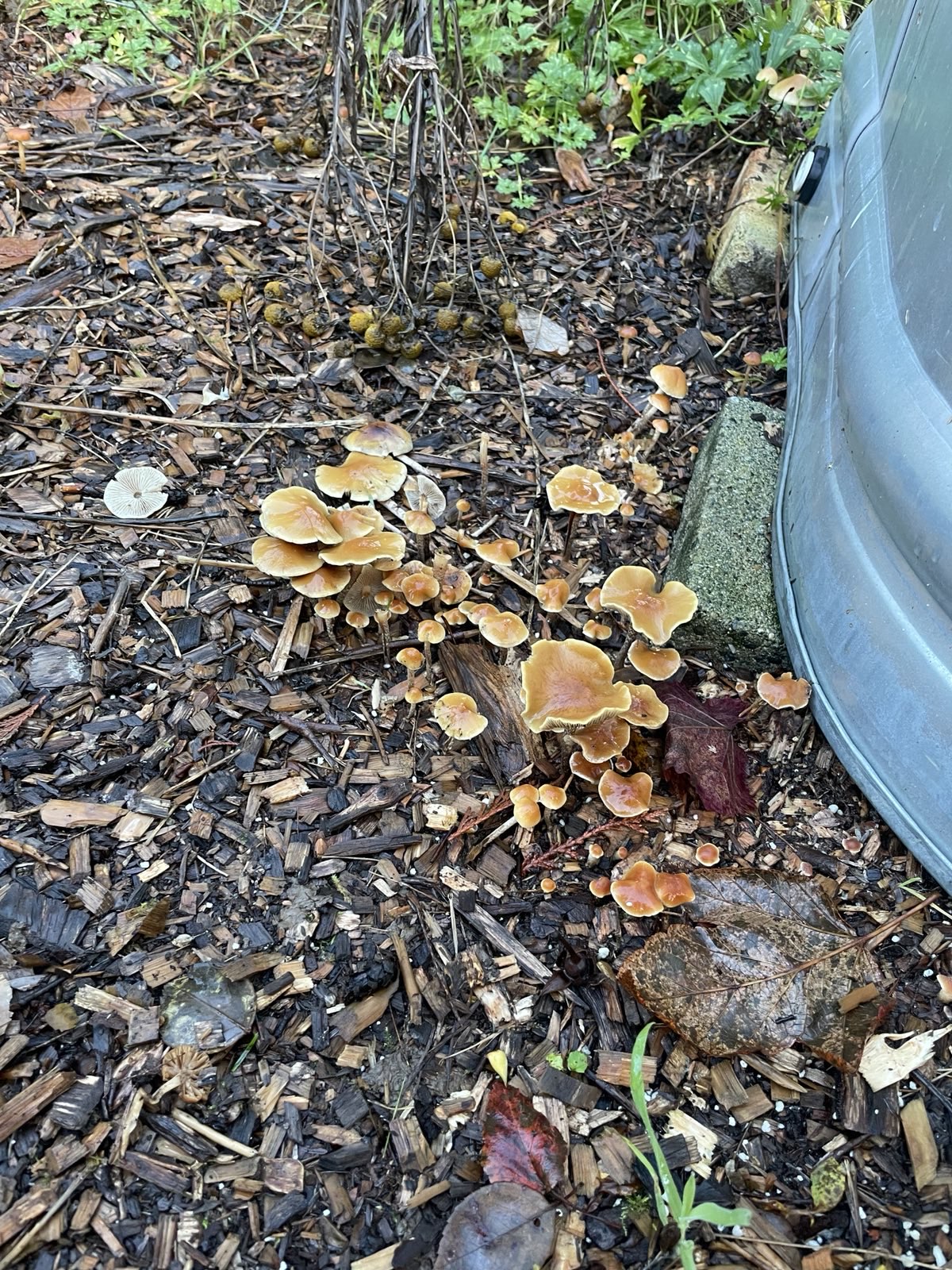
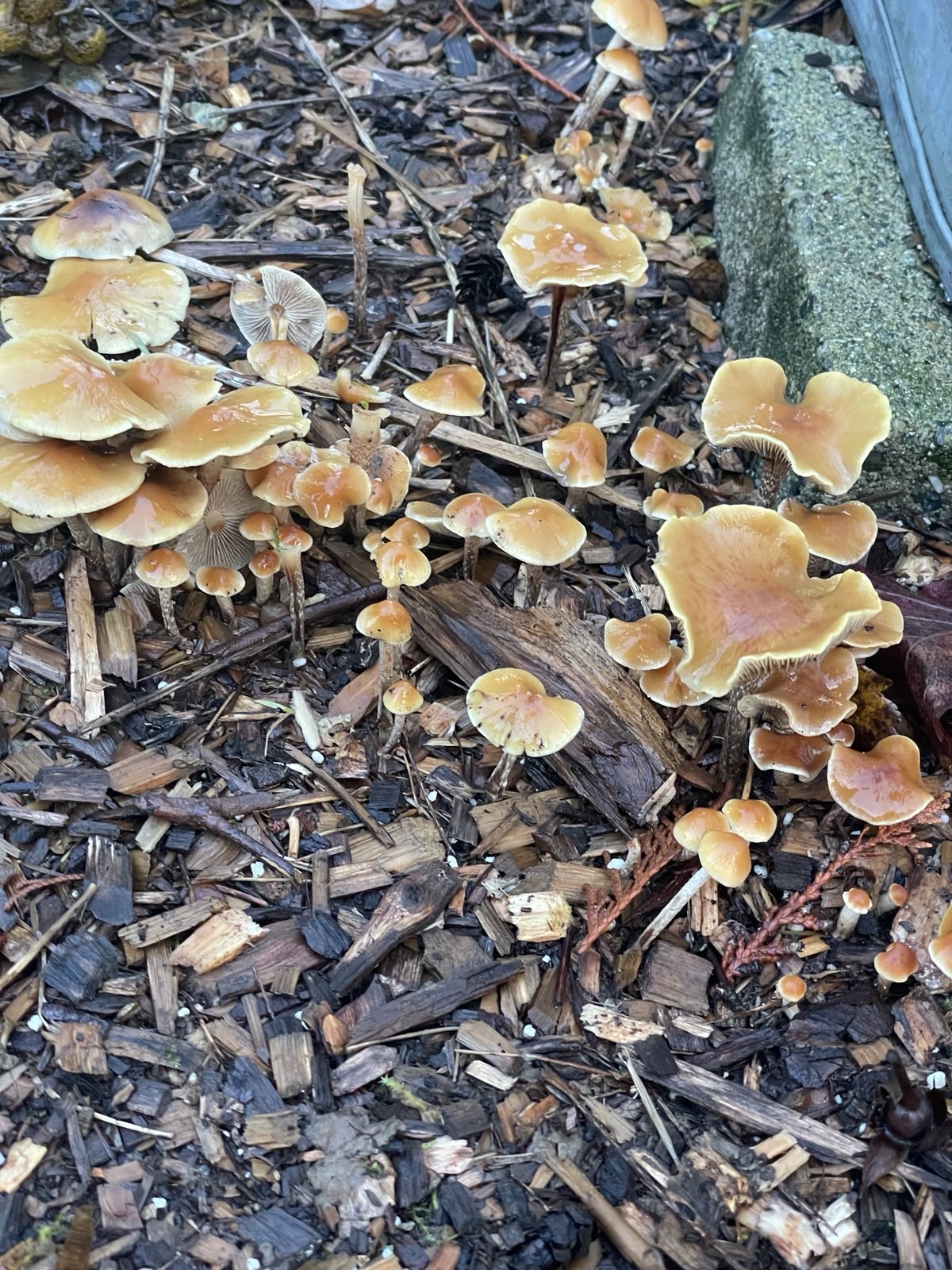
Cross-posts:

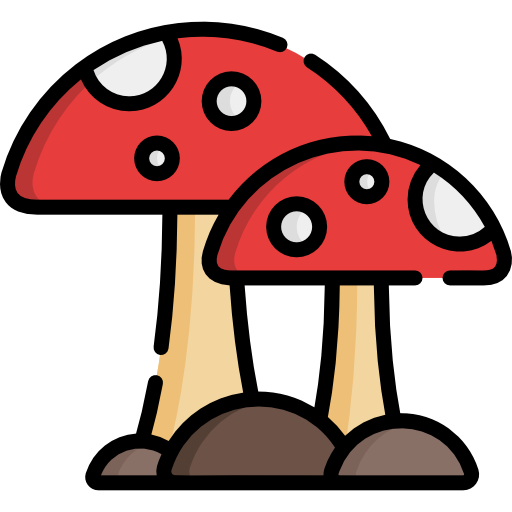
I sort of half agree with this. I think the important component that’s fundamental to what you are decribing is experience. Simply reading about mycology isn’t sufficient; one must also practice identifying what they find, and they must get constant feedback on whether the identifications are correct, and if they aren’t, one must learn why. Where we differ, I think, is that I think that one can do this via forums, it just might be less efficient. One must also be resistant to misinformation, and one must take a scientific approach to how the information is presented rather than purely a teacher/student approach.